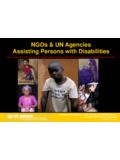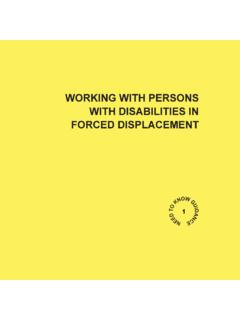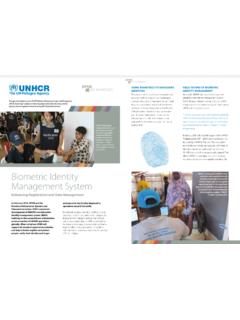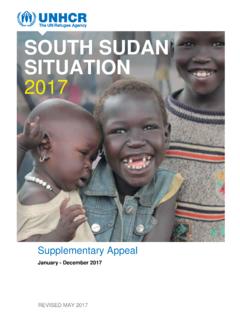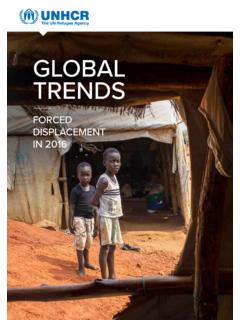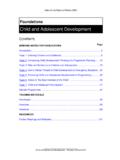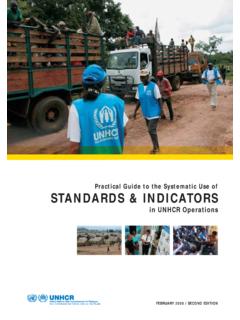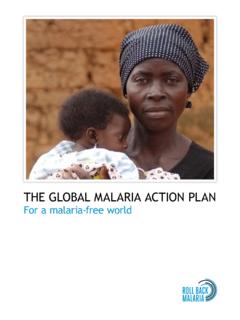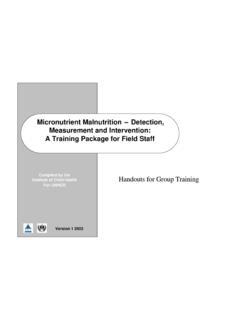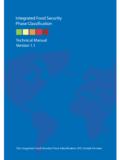Transcription of UNHCR’S MENTAL HEALTH AND PSYCHOSOCIAL …
1 UNHCR S MENTAL HEALTH AND PSYCHOSOCIAL SUPPORT FOR STAFFJuly 2013 Courtney E. Welton-Mitchell, Professor, Graduate School of Professional PsychologyInternational Disaster Psychology, University of DenverPDES 12/2013 United Nations High Commissioner for Refugees Policy Development & Evaluation Service Geneve, July 2013 This document is for general distribution. All rights reserved. Reproductions and translations are authorised, except for commercial purposes, provided the source is Development and Evaluation ServiceUNHCR s Policy Development and Evaluation Service (PDES) is committed to the systematic examination and assessment of UNHCR policies, programmes, projects and practices.
2 PDES promotes rigorous research on issues related to the work of UNHCR and encourages an active exchange of ideas and information between humanitarian practitioners, policymakers and the research community. All of these activities are undertaken with the purpose of strengthening UNHCR s operational effectiveness, thereby enhancing the organization s capacity to fulfill its mandate on behalf of refugees and other persons of concern to the Office. The work of the unit is guided by the principles of transparency, independence, consultation, relevance and PDES evaluation reports are placed in the public domain.
3 Electronic versions are posted on the UNHCR website and hard copies can be obtained by contacting PDES. They may be quoted, cited and copied, provided that the source is acknowledged. The views expressed in PDES publications are not necessarily those of UNHCR. The designations and maps used do not imply the expression of any opinion or recognition on the part of UNHCR concerning the legal status of a territory or of its photo: UNHCR Back-cover photo: UNHCR / A. Plotnikov / March 2006 Printed by UNHCR PDES 12/2013 Layout and Design: BakOS DESIGNA cknowledgementFirst and foremost it must be acknowledged that any evaluation of an employer s impact on the MENTAL HEALTH and well-being of its workforce is a sensitive undertaking.
4 When the employer is one of the largest frontline relief agencies in the world and many of its staff has been exposed to human rights abuses, state and militia supported violence, and wide-scale human suffering, the evaluative task is all the more complex. Adding to this complexity is the fact that humanitarian work has evolved significantly in the past few decades owing to the expanded role of information and warfare technology, oversight entities, the media and the consequences of unresolved conflicts in some regions. Humanitarian work has changed and the profile of the humanitarian professional has also noticeably evolved in the past two takes curiosity and courage to evaluate how well a humanitarian organization is taking care of its own staff.
5 It also indicates deep concern and care for UNHCR s staff members and good citizenship in the humanitarian community. This evaluation contributes to a growing body of literature on MENTAL HEALTH and PSYCHOSOCIAL support for humanitarians. The hope is that the findings and recommendations from these studies will enable both organizations and individuals to stay strong while providing relief for others in a chaotic analysis of such a sensitive topic requires a researcher who is neutral and scientific yet has sufficient knowledge of the subject to be able facilitate genuine and candid data through interviews, focus groups and research tools: an outsider who can understand the insiders.
6 Thankfully, Dr. Courtney Welton-Mitchell was available to research and write this evaluation. In addition to being on faculty in the University of Denver s Graduate School of Professional Psychology s International Disaster Psychology program, and holding a in Counseling, a in Social Psychology, and a in Affect/Social Psychology, Courtney worked for many years for the UN World Food Programme in Nepal and Tanzania as well as for the Cairo based NGO, African and Middle East Refugee Assistance (AMERA). Through her teaching and research, Courtney was able to articulate the trends and issues relevant to all humanitarian organizations and through her own humanitarian experiences, she was able to capture the nuances of UNHCR staff narratives.
7 The review benefitted from her ability to remain compassionately detached in processing the sensitive data of this evaluation. Courtney s team of researchers also deserves acknowledgement. We thank Gwen Vogel, Victoria Roeck, Mahaut de Talhouet, Carla Hauer Carrillo and Meghan Hunter for supporting Courtney through data analysis and coding, translations, copy-editing and data to the staff from ICRC, MSF-Holland, , WFP, OCHA, USAID, CVT and the Antares Foundation for sharing volumes of agency documents and insights. Many thanks to the Staff HEALTH and Welfare Service staff who also shared numerous documents and made time for multiple interviews and answered countless questions.
8 This review benefited also from the critical feedback of steering committee members, Betsy Greve, Marian Schilperoord, and Duda Suzic-Kofi who provided suggestions and corrections to research instruments and draft thanks are due to the UNHCR offices in Bangladesh and Pakistan who graciously hosted the field-based interviews and focus groups. Special thanks are extended to the independent support group for UNHCR staff survivors of critical incidents, including sexual assault and bombings; they provided input through interviews, focus groups and survey responses. Over 1,500 staff offered their opinions through the combination of the all staff survey, focus group participation and individual interviews.
9 Thanks to every staff member who shared his or her personal experiences and unique point of view. Gratefully, MaryBeth Morand Senior Policy & Evaluation OfficerTable of summary ..91. Purpose of the study ..132. Methodology ..14 Desk Review and Comparison with Other Agencies ..14 Interviews with Internal and External Stakeholders ..16 Field Work: Focus Groups and Interviews ..17 Online Survey ..20 Methodological Limitations ..213. Introduction: MENTAL HEALTH and PSYCHOSOCIAL Support for Humanitarian Staff ..22 Why Prioritize MHPSS for Staff? ..23 Guidelines.
10 24 Current Literature: Stress and Coping among Humanitarian Staff ..25 Staff Welfare in UNHCR ..304. Findings ..35 Good Practice Standards ..35 Summary Score for Antares Principles ..49 Managerial Responsibility for Staff Well-being ..50 Stress and Coping ..52 Distress ..56 Coping ..58 Critical Incidents ..59 Critical Incident Exposure ..59 Critical Incident related Distress ..60 Critical Incident Response ..61 Satisfaction with Critical Incident Response ..62 Service Utilization among Survivors of Critical Critical Incident Survivors Recommendations.

